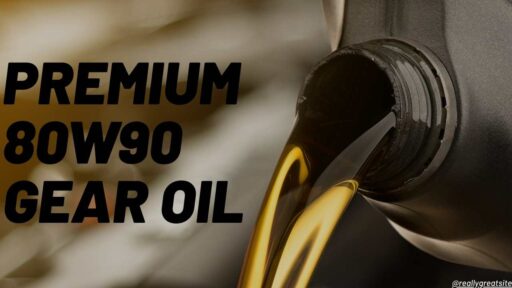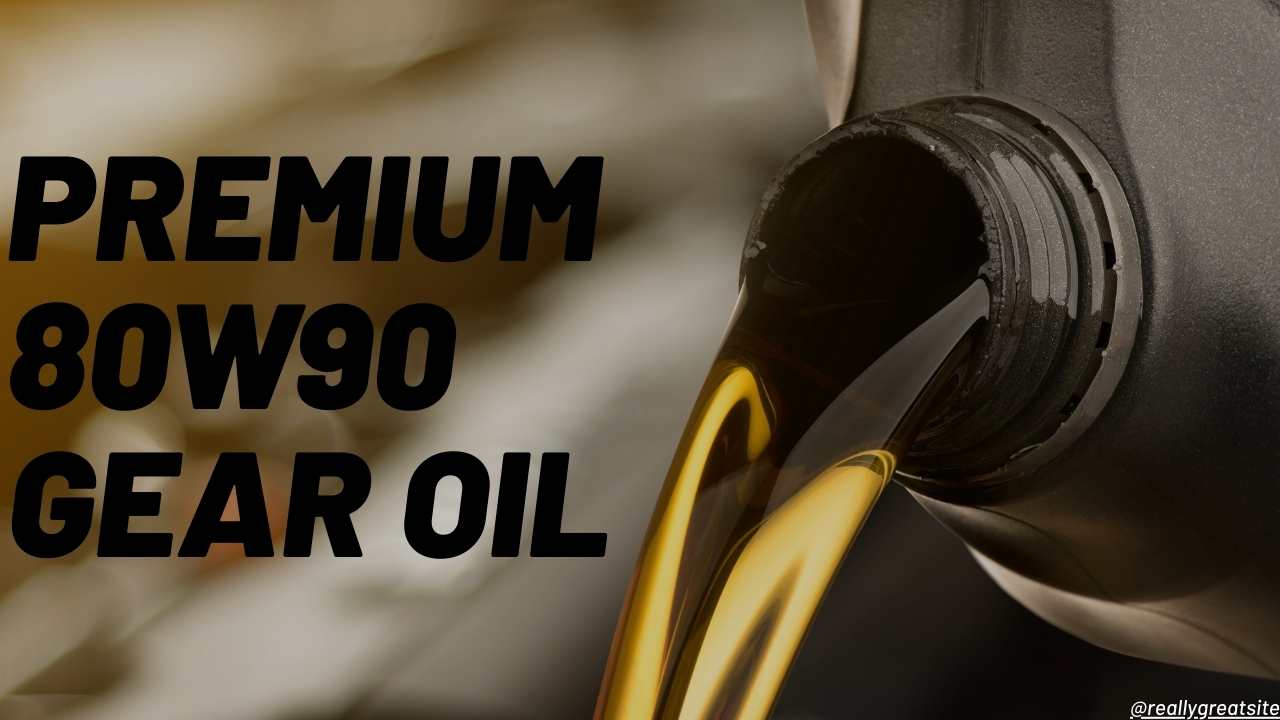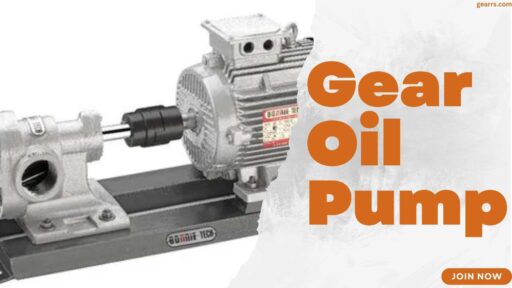Discover the benefits of 80w90 gear oil for optimal performance and protection.
When it comes to maintaining my vehicle, I’ve always believed that knowledge is power. That’s why I would like to start by bringing to light a component of vehicles that is crucial but often overlooked: gear oil. It is the unsung hero of your car, quietly helping everything run well under the bonnet. Lubricating Gear Guides in transmissions, differentials, and other driveline components is its major role. This would quickly degenerate into a cacophony of wear and tear and eventual breakdown without it.
Further than mere lubrication, gear oil prevents corrosion, helps dissipate heat and keeps gears clean from contaminants. Its importance cannot be overstated because it can determine how long your vehicle lasts or how well it performs. The correct selection of gear oil type is as important as having the oil itself.
As a person who pays attention to detail concerning my car maintenance, I have learned some things about this lubricant referred to as “gear oil.” It’s not something you just pick randomly from a shelf; there are specific grades and specifications one must adhere to so that his/her machine works fine; let me guide you through that process.
What Is 80w90 Gear Oil?
Now, we will delve into discussing 80w90 gear oil in more detail. Although this label appears complicated at first glance, there lies significant information behind it.
The numbers ‘80w’ and ‘90’ are known as viscosity grades, which simply describe the thickness or flow resistance possessed by the given oil; on the contrary, the letter ‘w’ here stands for winter, implying that the viscosity of this particular oil was tested at cold temperatures when oils tend to thicken making them difficult for protecting moving parts during start-up of an engine.
A high-viscosity lubricant intended for use over a wide range of temperatures is what 80w90 gear oil refers to. As such, it can function optimally in different climates and seasons.
Most vehicles used under regular conditions can be well-suited for this oil. This is a middle-of-the-road choice that bridges the gap between thick, heavy oils and thin ones.
It is important to understand the labeling. The Society of Automotive Engineers (SAE) sets guidelines for classifying gear oils. I have confidence in my oil whenever I see this stamp indicating that it has passed rigorous tests to meet specific standards.
Importance of Using the Right Gear Oil for Your Vehicle
The significance of using the right gear oil cannot be understated. Each automobile has recommended standards provided by its manufacturer, which should be adhered to religiously.
Such criteria are based on exhaustive research and experiments guaranteeing the reliable operation of a vehicle within its lifetime. If the wrong type of gear oil is used, it will result in more friction and wear, leading to premature failure of gears and bearings.
Furthermore, proper gear oil also affects fuel efficiency. Gears will require more energy to move if the lubricant is too viscous, leading to increased fuel consumption when driving a car; on the other hand, high metal-to-metal contact because the lubricant film is not sufficient, would cause an increase in resistance, which gives rise to additional wear.
Additionally, a lot of different components are available on modern cars that need to be lubricated with gear oil containing particular additives for them to work properly. Failure to use the correct kind of oil can result in both mechanical problems and nullify the warranties. That is why I always follow manufacturer’s specifications carefully.
How Gear Oil Works
To understand how gear oil works in a vehicle, one must first understand how it operates. It is, therefore imperative to know what role it plays within a car. Gear oil primarily serves three purposes: cooling, lubricating, and protecting.
First, it forms a thin film between moving parts made of metal so as to prevent them from grinding against each other. This protective coating helps reduce wear and tear while also extending component lifespans.
Secondly, this type of oil is used as a coolant. Gears produce heat when they rotate or transmit torque. The heat is absorbed by the fluid, which then carries it away from the gears, thus preventing overheating or damage that would otherwise have occurred.
This factor gains significance in high-performance vehicles or heavily loaded ones where thermal stress can be considerable.
At last, gear oils save gears and bearings from rusting and corroding due to their contained elements capable of neutralizing acids as well as moisture that might lead to oxidation and thus destruction of metallic surfaces.
Additionally, these chemicals aid in keeping gear faces clean through suspension of undesirable substances thereby allowing subsequent separation via filters or the sump into which they drain off motor oil molecules.
Factors to Consider When Choosing Gear Oil
Certain factors must be considered when selecting an appropriate gear oil. The most important factor here is viscosity which should conform with manufacturer recommendations and
prevailing operating conditions (Lubricants & Greases). For example, thick oils would be suitable for heavy-duty applications characterized by elevated temperatures, while light oils may perform better under colder atmospheric conditions.
Another issue is about whether there are any additives present in the fluid you are using. Such substances as anti-wear additives, rust inhibitors, and friction modifiers may greatly enhance the performance and protection that a gear oil can offer (Lubricants & Greases).
These features become very important if gears in your car are of specific types or you use your vehicle under harsh conditions.
In addition to these two aspects, the type of vehicle one drives matters a lot. For instance, the nature of the gear oil required in high-performance sports cars differs from that in heavy-duty trucks. Besides this, you may need to look for protective additive-containing gear oils when buying lubricants based on age and condition of your vehicle compensating for usual wear out.
Benefits of Using 80w90 Gear Oil
There are many advantages that arise from choosing 80w90 gear oil for my vehicle. Its viscosity is optimal to provide good lubrication across different temperatures and conditions. This adaptability is crucial for me because I want my car protected, whether it’s an extremely hot day or an extremely cold morning.
Moreover, 80w90 gear oil usually comes with additives mixed up at appropriate ratios to improve its performance. Thus, it has reduced wear-off effects, leading to a longer life span of the gears, among other benefits such as prevention against rusting as well as keeping clean within the gearing system. Consequently, there will be fewer repairs and replacements needed which saves me time and money eventually.
Furthermore, this type of gear oil can be found in most places, and it is suitable for many types of vehicles. Whether I am driving a light-duty passenger car or a heavier SUV, 80w90 gear oil generally satisfies the needs imposed by the manufacturer, thus allowing easier compliance with warranty requirements.
Common Misconceptions About Gear Oil
From my involvement with gear oil, there are numerous misunderstandings that exist leading to wrong practices of maintaining gears. One popular misconception is treating all gear oils as if they are alike and therefore interchangeable.
Nothing could be further from the truth. Every brand of gear oil has specific compositions plus additives designed for certain applications and situations.
Another myth is that people tend to believe that gear oil does not require change as often as engine oil. While it’s true that engines call for frequent oil changes, failure to replace it at recommended intervals can cause the accumulation of harmful substances, which degrade its quality, thereby compromising overall gear system health.
Lastly, some individuals think thicker gear oils always offer more protection. However, using too thick an oil can create excessive drag while lowering efficiency. It involves finding a middle ground within your vehicle’s specifications.
Benefits Beyond the Slick Surface
Choosing an 80W-90 over other viscosities goes beyond mere numbers; it implies that you want to get those benefits which suit heavy duty applications.
Lubrication That Literally Goes the Distance
One major advantage of 80W-90 gear oil is its excellent lubricating characteristics, which lead to reduced wear and tear and smooth operation over the years. Even under intense stress and heavy loads this oil sticks onto surfaces ensuring good working order and limiting metal upon metal contact capable of leading into catastrophic breakdowns.
Protecting the Elemental—Your Vehicle’s Guts
Each single one of them is an investment worth preserving; these are how every single gear in your automobile should be looked at. The invisible shield provided by 80W-90 gear oil protects your gears against damage from stress pressure, and they are found in the system and can’t be invaded by grit.
Constant use ensures that the gears stay in their best shape so that you can enjoy more mileage from your vehicle without calling for major overhauls.
How to Check and Change Gear Oil in Your Vehicle

Credit: www.pexels.com
Maintenance of vehicles is incomplete without periodically examining and altering the gearbox’s lubricant. To check whether I need to replace my gear oil, I remove the fill plug located on top of the gearbox or differential, I take a look at its level and condition. When it appears blackened, gritty, or smells burnt then it needs replacing.
To change the gear oil, the process involves removing the old oil by draining it out of your car; cleaning away any sludge found beneath your gear box which is then filled with new oil suitable for this purpose. It sounds simple enough but requires carefulness as well as cleanliness in order not to spoil fresh oil with dirtiness.
I never just drop off my old gear oil anywhere I want. This is not only my duty to keep my vehicle maintained but also an urge to help environment through proper disposal. In fact used engine oils can be recycled and disposed freely at many service stations and auto parts stores.
Where to Buy 80w90 Gear Oil
Several options are available when the time comes to buy 80w90 gear oil. I like to purchase mine from reputable auto parts stores or dealerships directly so as to receive high-quality products that meet manufacturer’s specifications.
Online retailers are another option which is convenient since they have a variety of selections and allow one to compare different brands and prices. However, it is important that you buy from a reliable source in order not to get counterfeit or substandard goods.
Finally, for those who prefer less involvement, a professional service center can offer gear oil change services as well as the oil itself. This option may be suitable if you would rather not do it yourself or want it done by an expert.
Frequently Asked Questions
How does 80w90 gear oil differ from other viscosity grades?
The difference is in the thickness of the fluid and its ability to work at different temperatures. The ‘80w’ means that this type of oil works better under cold conditions while the ’90’ shows that it can be used under higher temperatures. Other viscosity grades are designed for use under different operating conditions.
Can I mix different brands of 80w90 gear oils?
Usually, mixing different types or brands of lubricants is not recommended because their additive packages may not be compatible with each other. This might reduce their effectiveness or cause damage in your gearbox system.
When should you change out your 80w90 gear oil?
It all depends on what the manufacturers say about how often they think it should be changed, what kind of vehicle it needs to go in, and how much abuse it sees. As a rule of thumb, it would be best if you checked your owner’s manual or talked with a certified mechanic.
Is 80w90 gear oil okay for any car?
No, certain vehicles do not need 80w90 grade engine oils. It is essential to consult either your car’s user guide book or an expert in order to identify the appropriate viscosity grade and specifications meant for your car.
Conclusion
It is important to understand and choose the right 80w90 gear oil for your vehicle so as to ensure the best performance of all drive-line components in your vehicle. By considering the viscosity, additives and what your vehicle needs, you can make an informed choice that will keep your gears moving smoothly.
Remember that maintaining gear oil properly is as crucial as doing it with engine oil hence saving yourself from heavy repairs afterwards. Whether you are a seasoned petrol head or occasional driver, I hope this guide has provided some valuable insights into gearbox lubricants. Bear them in mind, and let your car be grateful to you for it.






